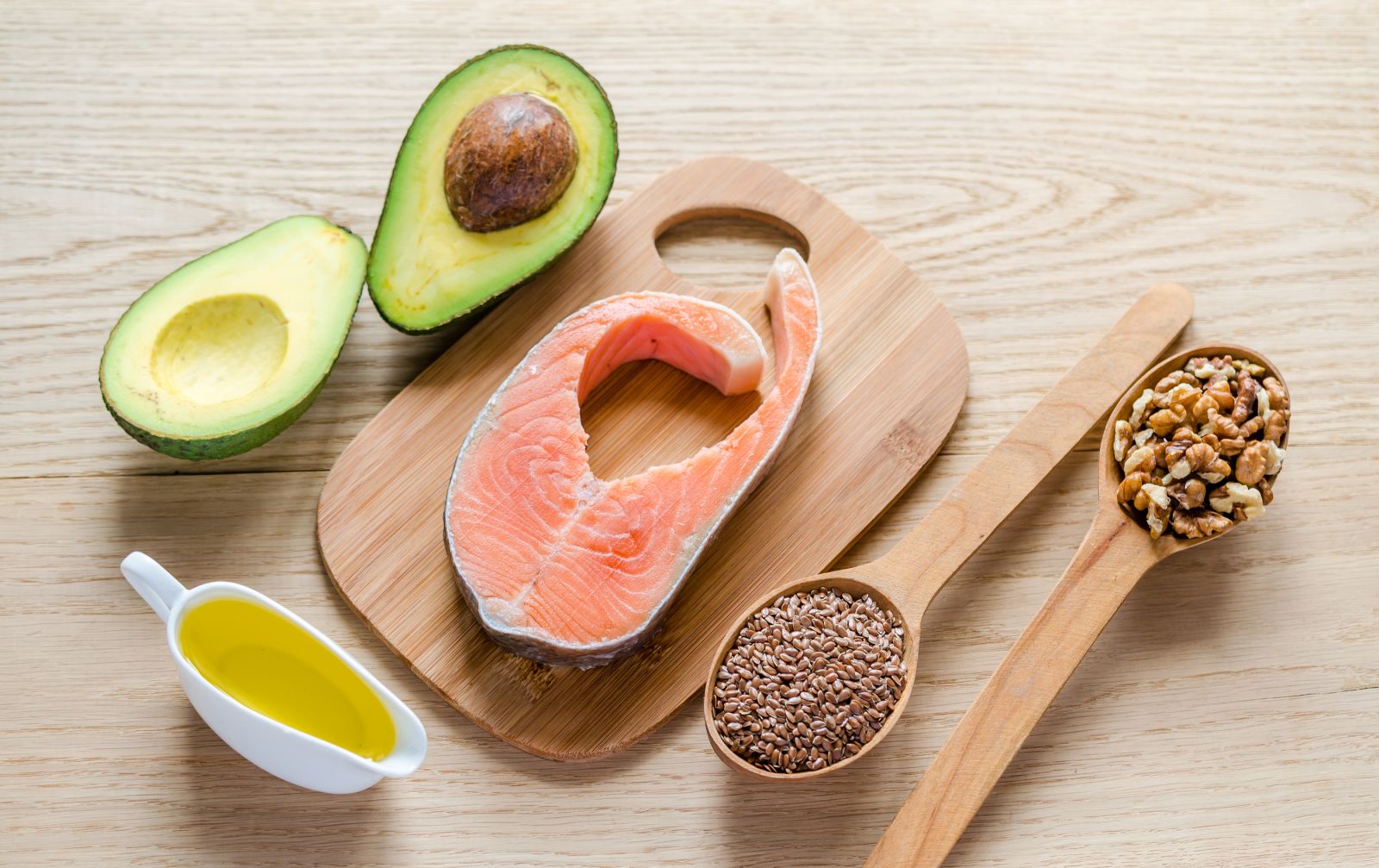Moderation: The Golden Rule
"We only have three things to eat: carbohydrate, protein, and fat. For some reason, we've chosen in the last few decades to focus on how bad fats are in general. Your whole body depends on fat. All of our membranes are made of phospholipids. Your hormones depend on the types of fat and the amount of fat that you eat."
"When you eat a diet really rich in things that promote those inflammatory responses, then your body really doesn't know how to shut that down anymore. If we had a mixed diet, a combination of all these fats together, then it probably wouldn't be a problem. But people today have diets that are very rich in Omega 6 and are deliberately avoiding saturated fat. That's when it becomes really problematic."
Dr. Deanna Gibson, immunologist, microbiologist, associate professor of Biology, University of British Columbia
"I've been studying fat for twelve years. In earlier studies I found that sunflower oil was worse than palm oil, and people couldn't believe it. But I'm convinced, and I think other people now understand, that saturated fat is not as bad as we thought."
"It happened with trans-fats [dietary advice instructed by social, political and economic forces]." We've known they were bad since the 1980s, and 20 years later the government finally agreed. But then all the big food companies said, 'Hey, we can't change our oil so fast. We need time, because the new oil changes our flavour profile [of pre-prepared convenience foods]."
"In the 1950s and 1960s, the North American oil crop farmers were getting hammered by the Malaysian and Indonesian imports of coconut oil. Essentially, no saturated fat containing plants can grow properly in North America. What we do grow is sunflower, safflower, canola, corn, etc. So from the 1950s on, saturated fat was considered to be bad."
"Our saturated fat intake has not increased over the last 30 years. So why is heart disease still rising? If saturated fat was causing this, logically it should drop if we take it out of the diet. But it's still going up."
Dr. Sanjoy Ghosh, nutrition researcher, University of British Columbia
Fat derived from animal sources are identified as dairy, eggs and meat, along with tropical plants like coconut and palm. These are fats that represent a platform for many traditional diets world-wide, and have done for centuries. But the prevailing opinion of nutritionists and doctors turned away from these fats, called saturated fat, in the belief that they were the cause of atherosclerosis and heart problems. And the zeitgeist in health hasn't notably changed; people are still being warned off consumption of saturated fat.

The American Heart Association, as an example, feels justified in recommending that saturated fats in the diet be restricted to no greater amount than five percent of total diet. "Decades of sound science", it declares on its website, has proven beyond doubt that saturated fat "can raise your 'bad' cholesterol and put you at higher risk for heart disease". Yet researchers are increasingly coming around to the opinion that this bias against saturated fat as a health threat should be questioned.
Dr. Gibson, for example, speaks of human biology requiring the consumption of quality fat on a daily basis to ensure satisfactory brain function and along with that, a healthy body. Several social-cultural currents have led to our aversion to fat in our diet, one of which is the prevailing culture of 'thin' as being fit and attractive. And the thought of deliberately adding saturated fat to one's diet resulting in increased weight and an altered body silhouette is anathema to many people, quite apart from the health aspect.
And yet, people are drawn to fat; subconsciously the palate craves it, as it does sugar and salt. The consuming public has become accustomed to slavishly considering saturated fat to be inimical to good health, and has accepted food manufacturers' claims of trans-fats as a healthy alternative, enabling people to bypass any feelings of guilt, preferring to believe that the adulterated food that ends up in convenience form loaded with trans-fat, salt and sugar represents healthy eating. When in fact, those choices represent one of the reasons why we have become an overweight and ill society.
Some common foods containing saturated fat
| to be eaten in sensible, moderate amounts | ||
|---|---|---|
| beef fat (tallow, suet) | butter | chicken fat |
| coconut oil | cream | hydrogenated oils** |
| milk fat | palm and palm kernel oils | partially hydrogenated oils** |
| pork fat (lard) | shortening | stick margarine |
Up until the 2000s, trans-fat was promoted as a breakthrough alternative for good health as compared to the negative effects on the body of saturated fat. At the present time, dietary guidelines issued by government recommend vegetable-sourced fat ... soy, corn, sunflower and canola ... in place of meat and dairy fats. "We base our hypotheses on previous literature or previous assumptions, and it turns out wrong when you do the studies" observed Dr. Gibson. "I'm often shocked about how little is known scientifically in nutrition."
Dr. Gibson recently published her latest study in the Journal of Infectious Diseases. The study, conducted in laboratory rats, concluded that saturated fat is far more digestible and efficient than most vegetable oils that we are led to believe are healthier dietary choices. An exception was monounsaturated olive oil for intestinal health, but saturated fat outperforms the vegetable-based oils that are high in polyunsaturated fatty acids (PUFAs) and Omega 6.

Another trial is set to be undergone to test different fats on humans with inflammatory bowel disease. Conflicting studies exist favouring PUFA oils over saturated fat, a conclusion whose evidence Dr. Gibson fails to be impressed with. "We have to be more critical about the studies that we interpret. Most of the nutrition clinical trials that are out there are very poorly done, and most of the rodent studies never led to a clinical study. It doesn't inform the next step", Dr. Gibson explained.
Most modern-day diseases appear to have their basis in chronic inflammation. Dr. Gibson believes that Omega 6-heavy diets are in part to blame, based on the evidence she has studied. And a study that Dr. Ghosh published in 2015 found that vegetable fats contribute to sedentary behaviour along with creating a predisposition to insulin resistance, reflective of hormonal dysfunction that leads to Type 2 (insulin-resistant) diabetes (once called 'adult onset', commonly striking overweight, middle-aged sedentary individuals).
And Dr. Ghosh believes that the ill reputation that is attributed to saturated fats arose from industry-based benefit, and not science-based fact. A food advocacy group, the Weston A. Price Foundation, published their findings in an article titled The Oiling of America, which offers a detailed history of marketing of vegetable oils in America, pointing out the unscientific rationale for claims that saturated fat should be shunned.
"In the last 30 years", noted Dr. Ghosh, "North American fat consumption has changed drastically. People used to cook with lard, but nobody does this today. Everything in the market has consciously taken saturated fat out." Yet, according to the American Heart Association's statistics for 2015, cardiovascular disease remains the leading global cause of death, accounting for over 17 million deaths annually, expected to increase to 24 million by 2030.
Labels: Bioscience, Diet, Fads, Health, Nutrition

0 Comments:
Post a Comment
<< Home